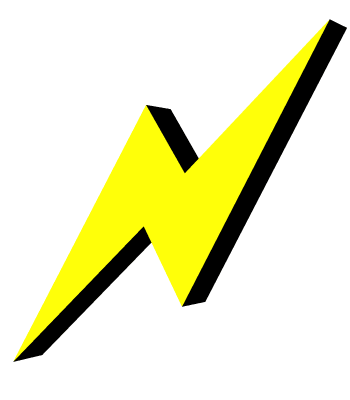Health and Safety
Essential advice: electrical safety
Faulty electrical equipment is a major cause of fires in student Halls of Residence. Please follow our advice and help to keep yourself and your fellow students safe.
UK Electrical supply is 230 volts (not 110 volts). You must only use electrical equipment purchased in the UK. You may use 110 volt rated equipment if you use an approved voltage converter.
Use the right equipment
Always purchase electrical equipment from an approved high street supplier. Never use equipment purchased on the internet as you may not be able to verify its safety.
Approved electrical equipment always comes with the CE mark on it
This means that it has been approved for use in the UK.
Dodgy plugs
Do not use cube adaptors. Only use strip plugs with a switch, LED and fuse.
Overload
Don’t overload your sockets or strip plugs. Keep equipment to a minimum. If you are not using a device then switch it off and disconnect it. Leaving equipment switched on can cause it to overheat and also wastes precious energy.
Check your wires and equipment for damage.
We use 13amp 3 pin plugs in the UK. Make sure you do too. Always check the condition of the plug before you use it. Are the pins solid, is the casing damaged and is the wiring sheathing complete and not broken or cut or open? Do not attempt to mend damaged cables or leads. Throw them away.
Keep your room tidy
Keep your cables tidy. If your room looks like a plate of spaghetti then you are living in a fire hazard. Don’t trail them across your floor either or this could happen.
Switch it off. Save energy. Cut pollution.
Switch off all electrical equipment when you leave your room. Do not leave chargers, computers, hair driers and hair straighteners on if you are not there. Never leave a hair drier or charger on your bed at any time. This is very dangerous. If you have any concerns about any electrical equipment you have then go immediately to the Hall office. The staff there will advise you on what to do.
If you have purchased an electrical device and are concerned in any way please take it to the office and ask your Residence Manager or a member of the maintenance staff to check it over for you. Electricity can kill. Do not take unnecessary chances.
Faulty electrical items can cause electric shocks and can also lead to fires which may cause death, injury to others or damage to property.
When purchasing electrical equipment please consider the following;
- Always buy equipment from a reputable dealer or high street shop
- Avoid cheaper unbranded goods from market stalls or the internet
- Do a visual check of the wires and insulation
- Check all parts are in place and nothing is loose
- Does the plug fit the socket properly?
- Does it have a manufacturers brand name and serial number?
- Is it rated for the correct voltage? It needs to be 230v in the UK.
- Is the output correct for your device?
- Check the device has a Conformity European CE safety marking on it

Checklist for electrical appliances:
Every time you use equipment and tools you need to go through this check list
Ensure the plug is not damaged. There should be no cracks or bits missing, all screws and fastenings should be in place and working
- Ensure the cable is correctly secured in the plug with no internal wires visible
- Check that no part of the cable, sockets or plugs have been repaired with tape or any type of connector
- Check that the cable is in good condition with no wires showing and the outer layer is in one piece
- Do not overload extension leads. Only use extension leads if there is no other option
- Check the outer cover of the equipment is not damaged in a way that will give rise to an electrical or mechanical hazard
- If equipment is broken or in need of repair please speak to your Residence Manager who will be able to recommend how to organise a fix or disposal. Never leave faulty equipment for someone else to use.

What to do in an emergency:
If you suspect a device is overheating switch it off at the socket, unplug it and place it in a safe area away from flammable items. If the device has caught fire sound the fire alarm and extinguish the fire if you feel confident to do so using a CO2 or dry powder extinguisher.
Do not use water. If you suspect someone has suffered an electric shock, do not touch them. Switch off the electricity supply to the device and move the person away from the device with an insulated tool such as a broom. If possible move them into the recovery position and call 999.
Topics
- Read Next
-
 Quieter Lifestyle Scheme trial in UAL Halls
Quieter Lifestyle Scheme trial in UAL Halls
 Important info about Glassyard Building Works in 2024/25
Important info about Glassyard Building Works in 2024/25
 Halls Life team win two accolades at Queer Student Awards
Halls Life team win two accolades at Queer Student Awards
 5 reasons to use a KeepCup
5 reasons to use a KeepCup
 Our coffee is better than Fairtrade, here's why
Our coffee is better than Fairtrade, here's why
 Meet Extract Coffee's roasters...
Meet Extract Coffee's roasters...
 Take a look around our canteens and cafés
Take a look around our canteens and cafés
 Why you should stay in London this summer
Why you should stay in London this summer
 UAL now offers guarantor service to help students
UAL now offers guarantor service to help students
 Halls Life team wins big at CUBO Awards 2024
Halls Life team wins big at CUBO Awards 2024
- Popular
-
 How to get a National Insurance Number in the UK
How to get a National Insurance Number in the UK
 The ultimate guide to your new home
The ultimate guide to your new home
 The Handy Halls Checklist 2023
The Handy Halls Checklist 2023
 How to apply for discounted student travel
How to apply for discounted student travel
 Get in contact with your hall
Get in contact with your hall
 8 things different about life in the UK vs China
8 things different about life in the UK vs China
 Opening a student bank account in the UK
Opening a student bank account in the UK
 Make sure to register at your GP
Make sure to register at your GP
 Fire Safety in Halls
Fire Safety in Halls
 Student tours of UAL halls
Student tours of UAL halls



